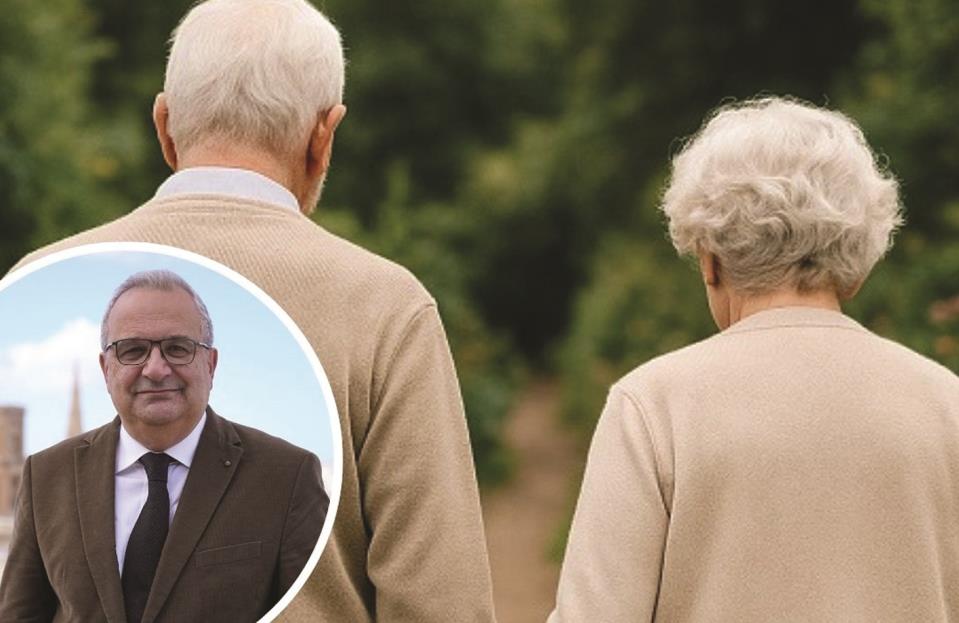Commissioner for the Elderly Alexander Attard has issued a stark warning: society is failing its older citizens. Despite being a growing demographic, elderly persons are too often ignored, underserved, and treated as if they have vanished from public life.
“There’s an unconscious bias that paints the elderly as passive, dependent or invisible,” said Attard in an interview with The Malta Independent on Sunday. “You often hear terms like ‘frail’ used interchangeably with ‘old’. That’s not just inaccurate – it’s harmful.”
Established in 2016, the Office of the Commissioner for the Elderly is tasked with investigating complaints, advocating for dignity in aging, and ensuring that human rights are upheld for all persons over the age of 60. But the problems are mounting – and the commissioner is sounding the alarm.
The state of Malta’s care homes remains one of the central issues. The commissioner noted that many homes face ongoing concerns over “understaffing” and “burnout in care workers”. He pointed out that many carers are foreigners who often face “language problems” when trying to communicate with elderly residents, especially those with dementia. “One of the problems that arises is the language barrier. Carers are foreigners and many times they don’t speak the language,” he said.
During the interview, he explained that his office regularly receives complaints about standards of care. In such cases, the commissioner may refer the matter to the Office for the Protection of Social Affairs (OPSA), which holds inspection powers and can suspend or revoke licences. “We can intervene, we can refer cases directly. OPSA can do inspections. If a home does not meet the required standards, OPSA has the authority to take action.”
But it’s not only within care homes that elderly people are being neglected. A growing digital divide is leaving many seniors locked out of essential services. Although more elderly individuals use the internet today than in the past, many still struggle to perform certain tasks online. “There was a significant increase in the percentage of elderly using the internet, which was good,” he said. “But using the internet is not the same as being able to navigate your bank’s website or book services online.”
Attard highlighted how digitalisation is often assumed to be universally beneficial, without realising that many elderly people “do not have the ability” to complete tasks online, leading to serious exclusion. “You can use the internet, but when it comes to booking something on a website or understanding different options, many elderly people just can’t,” he said.
He pointed to the absence of elderly people in public campaigns – particularly mental health initiatives – as another form of neglect. “When they do campaigns for mental health and they say to call a helpline or speak to someone, they always use young people in the images and videos. They never show older people. But loneliness affects elderly people the most,” he said.
The issue of active-aging – promoting meaningful engagement, volunteering and mobility among older adults – was another concern. Attard acknowledged that while the idea is important, its implementation is lacking. “There’s not enough promotion,” he said. “There are services out there, but they are not being promoted properly. They’re not visible enough.”
He argued that keeping elderly people in their communities – not institutions – is both more humane and cost-effective. He gave the example of countries like Sweden, where daily support services like mobile vans provide care while allowing seniors to remain at home. “Why are you keeping a person at home? Because it’s good for him. But at the same time, you’re freeing up a place in a home for someone else who really needs it.”
Attard stressed that aging is not an illness, and the way society treats its elderly reflects broader social values. “The word ‘frail’ is being misused. Not every elderly person is frail. A frail person is someone who lacks mobility or needs extra support – but age alone doesn’t mean frailty.”
He also noted that active-aging is not just about programmes – it’s about environment and safety. “If the streets are unsafe, if the pavement is broken, if there’s no transport, then how can an elderly person live independently?”
Ultimately, the commissioner’s message was clear: Malta must do more to recognise the elderly as full citizens with the right to dignity, visibility and voice.
“This is not just about services. It’s about recognition,” he said. “It’s about seeing the elderly not as a burden, but as individuals with lives, experiences and rights.”
